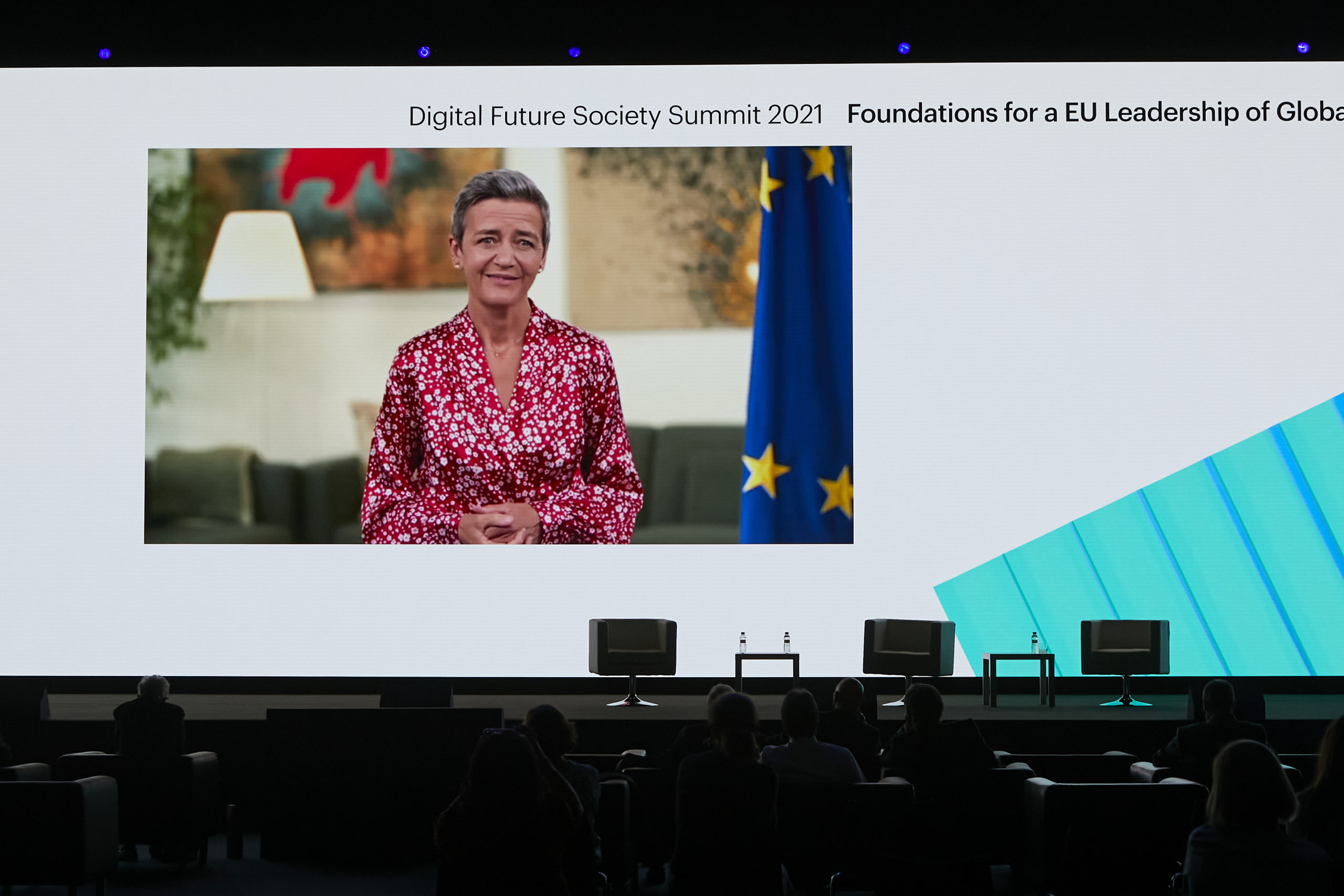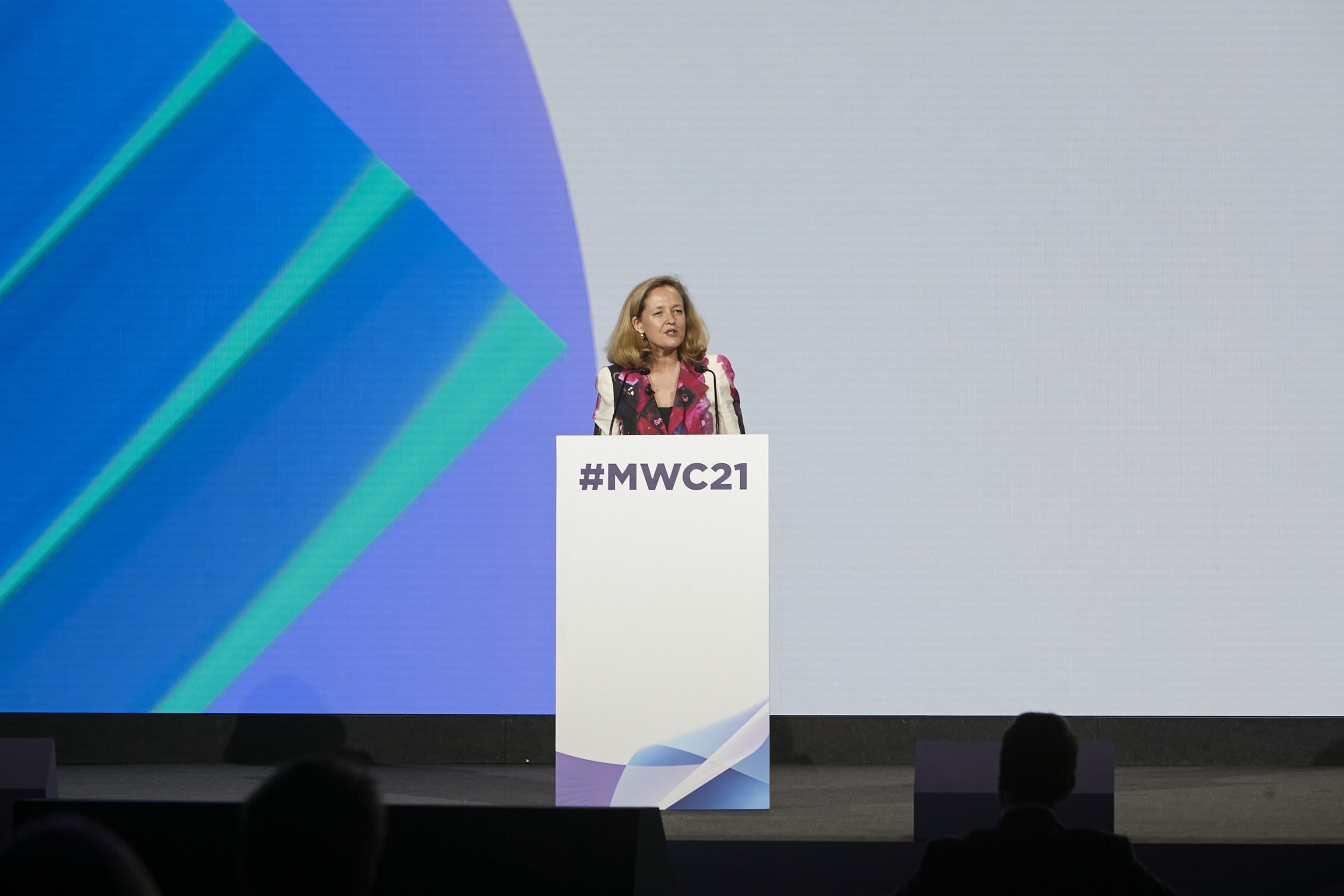Humanism in the digital age Official Site
This year, Barcelona became the capital of ethical debate in technology. No longer just the mobile capital of the world, the pandemic has reinforced the need for a new paradigm that puts people at the centre of the technological discourse and implementation. For the first time, MWC Barcelona 2021 shifted its focus from devices to technoethics.
At Digital Future Society we have been working with this focus for more than two years, and both government and public institutions, as well as the private sector, are increasingly involved. This debate on the ethics of technology will mark the political and business agenda in the coming years, highlighting the value of working together towards a common goal: sustainable digital transition.
On Monday 28th June 2021, Digital Future Society held its summit, a high-level event that took place within MWC Barcelona 2021, in collaboration with the Secretary of State for Digitalization & Artificial Intelligence (SEDIA), from the Government of Spain. The Summit explored possible courses of action to solve some of the major challenges arising from the digital emergency from a humanist perspective.
The Covid 19 pandemic has sparked a global health crisis, a global social crisis and a global financial crisis, raising profound questions about the future of humanity in the digital era. We are facing a digital emergency. Technology is transforming the world as we know it, and public and private actors need to understand the meaning and consequences of these changes. The Digital Future Society Summit “Humanism in the Digital Age: Debating Today for a Better Future” gathered key stakeholders from public administration, private sector, top-leading thinkers and activists, aiming to foster essential dialogues and set new rules, frameworks and aspirations to put people at the centre of technological developments and establish a more sustainable, equitable and inclusive digital agenda.
Welcome address
Digitalisation has made our lives easier, but the pandemic has also shed light on the many inequalities deeply rooted in our societies. Jaume Collboni , First Deputy Mayor for Economy, Labor, Competitiveness and Finance at Barcelona City Hall welcomed guests and outlined Digital Future Society’s commitments towards a more inclusive digital society, highlighting the essential need for public institutions to promote digital inclusion policies. “We want to be a Silicon Valley of equal opportunities, inclusion and inclusive progress”, he said.
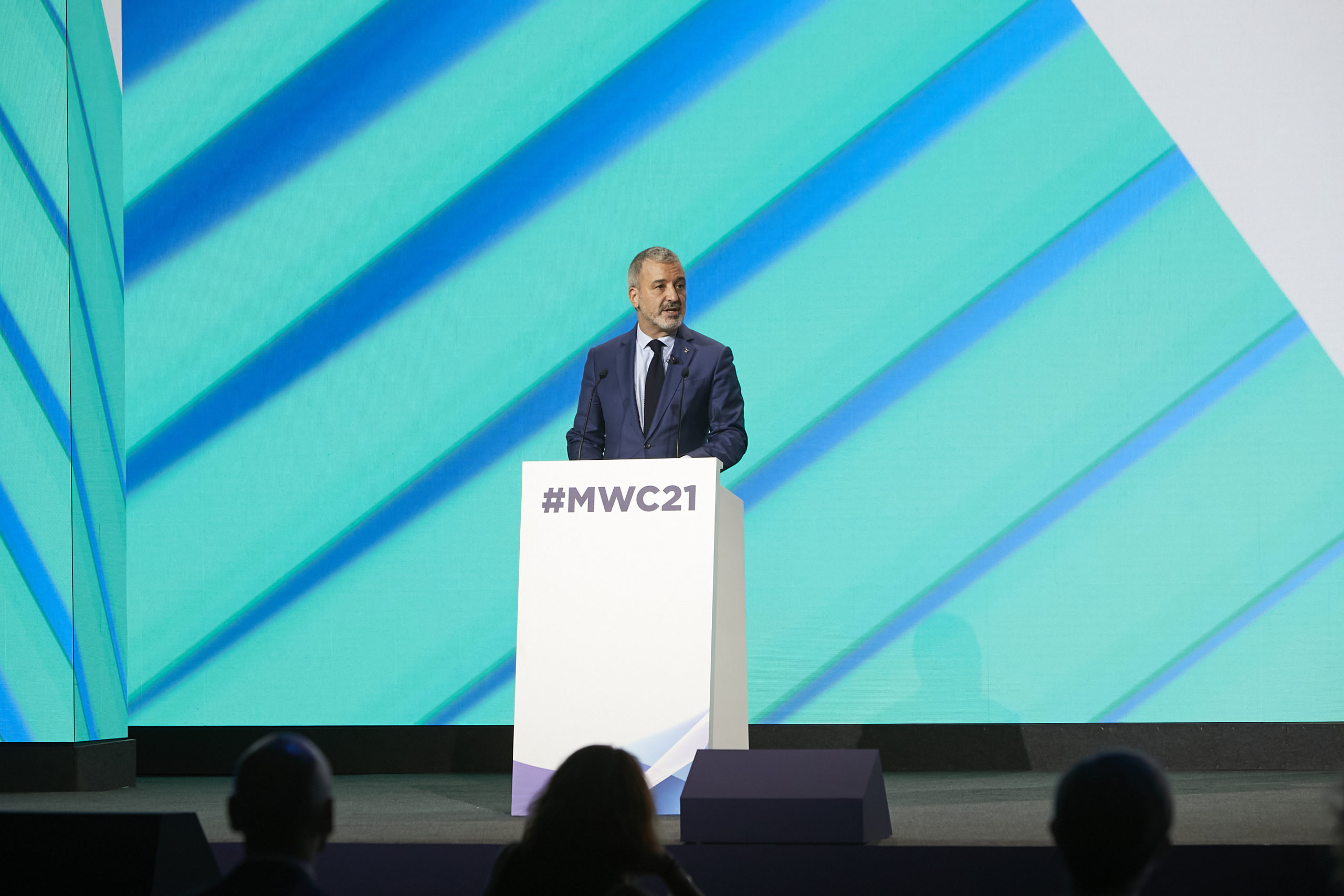
VIP Dialogue 1: Human evolution and the future of a connected world
The welcome speech was followed by a VIP dialogue moderated by Carme Artigas, Secretary of State for Digitalization & Artificial Intelligence for the Government of Spain. Historian and best-selling author, Yuval Noah Harari, was joined by Juan Luis Arsuaga, paleoanthropologist and author from the Universidad Complutense de Madrid. Harari conjured up a vivid image of the future, claiming that “humans will use technology to improve themselves and create the perfect human…whether this will be for good or for bad, this is an open question” and suggested that whether we create a dystopia or utopia is up to us. “Science and technology provide tools” but they do not resolve this type of debate: “it is up to politicians and people to make good use of them… AI can be used to create a digital dictatorship or to create the best healthcare system in the world. It is a political and ethical question for humans to decide.” Arsuaga largely agreed with Harari. On the evolution of humanity in the digital era, he cautioned that “science is the new god, but it can prevent societies from progressing,” while noting that “algorithms cannot change our desires or wishes” and that “biological changes take much longer than digital changes.”

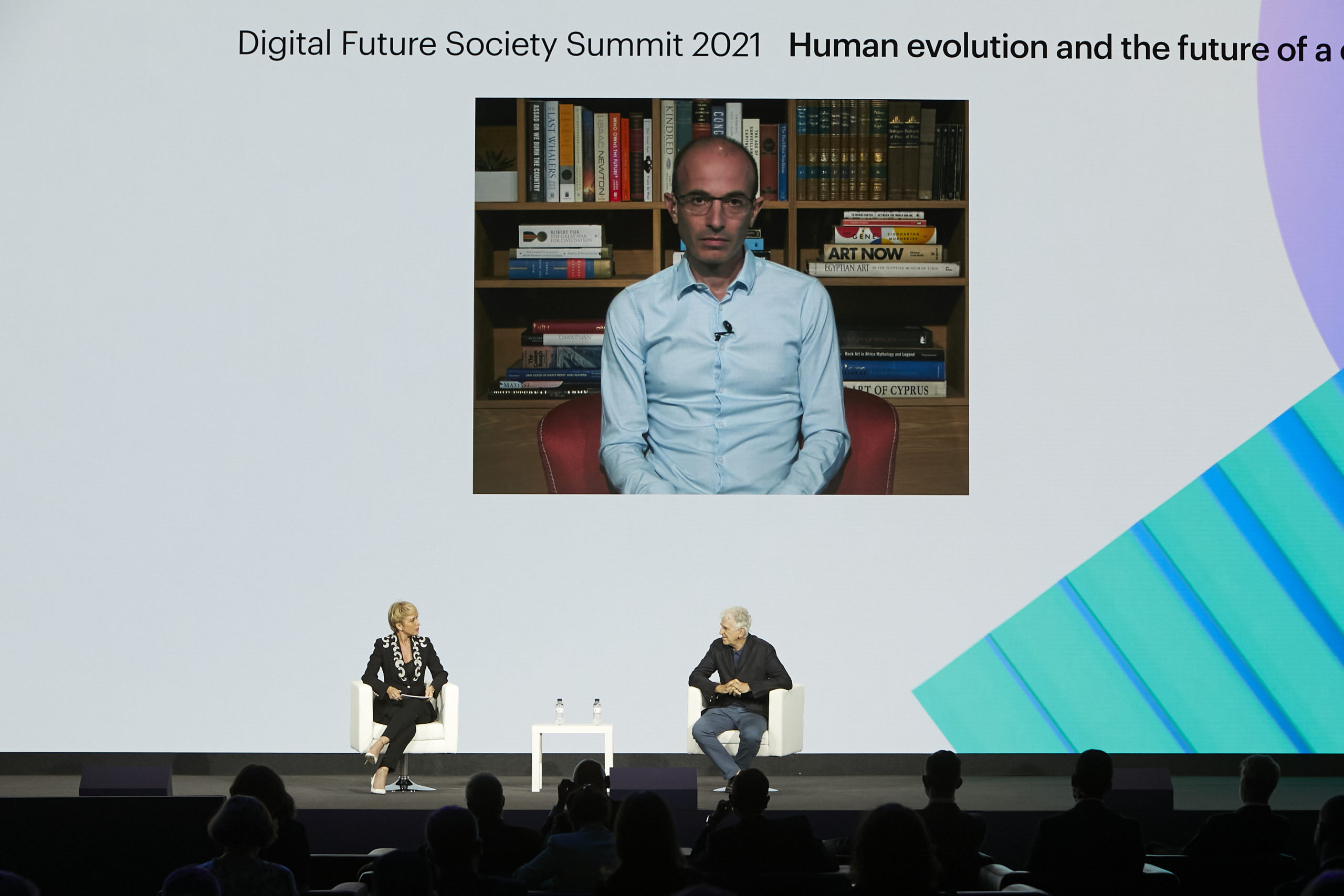
VIP Dialogue 2: Responsible technologies in a digital society
A short while later, following a welcome address from Mats Granryd, General Director of GSMA and Digital Future Society Global Board Member, we kicked off our second VIP dialogue, moderated by Digital Future Society Director, Cristina Colom. Speaking for Digital Future Society, Colom emphasized that “we really believe in global collaboration for a digital society that’s more inclusive and more sustainable.”

The Digital Future Society director was joined by Renata Ávila, International Human Rights and Tech Lawyer, Co-Founder of Alliance for Inclusive Algorithms, Race and Technology & Fellow at Stanford University. Ávila, a Digital Future Society board member, began by focusing on the imbalance of power in the digital world, stating that “we need to bring back real people into the decision rooms.” When asked about the digital divide she pointed out that “it’s 2021 and we are still talking about connectivity as the main divide. I think we need to be more ambitious with that debate.” F ellow Digital Future Society board member Markus Reinisch, VP for Public Policy Europe, Middle East and Africa at Facebook, believes getting a handle of the digital divide is a question of understanding its extent: “you cannot improve what you cannot measure, so we have to ask ourselves: how big is the digital divide?” Director of Public Policy & Internet at Telefónica, Christoph Steck, emphasized that “with cooperation and innovation we can improve connectivity” but we need education to really tackle the digital divide. As the discussion progressed, Lorena Jaume-Palasí, Founder of The Ethical Tech Society, claimed that “we need to see new technologies as infrastructure” because “the ideas behind creating infrastructure with optimisation as a principle are wrong. Optimisation is adapting to a situation, but the future is not about that.”

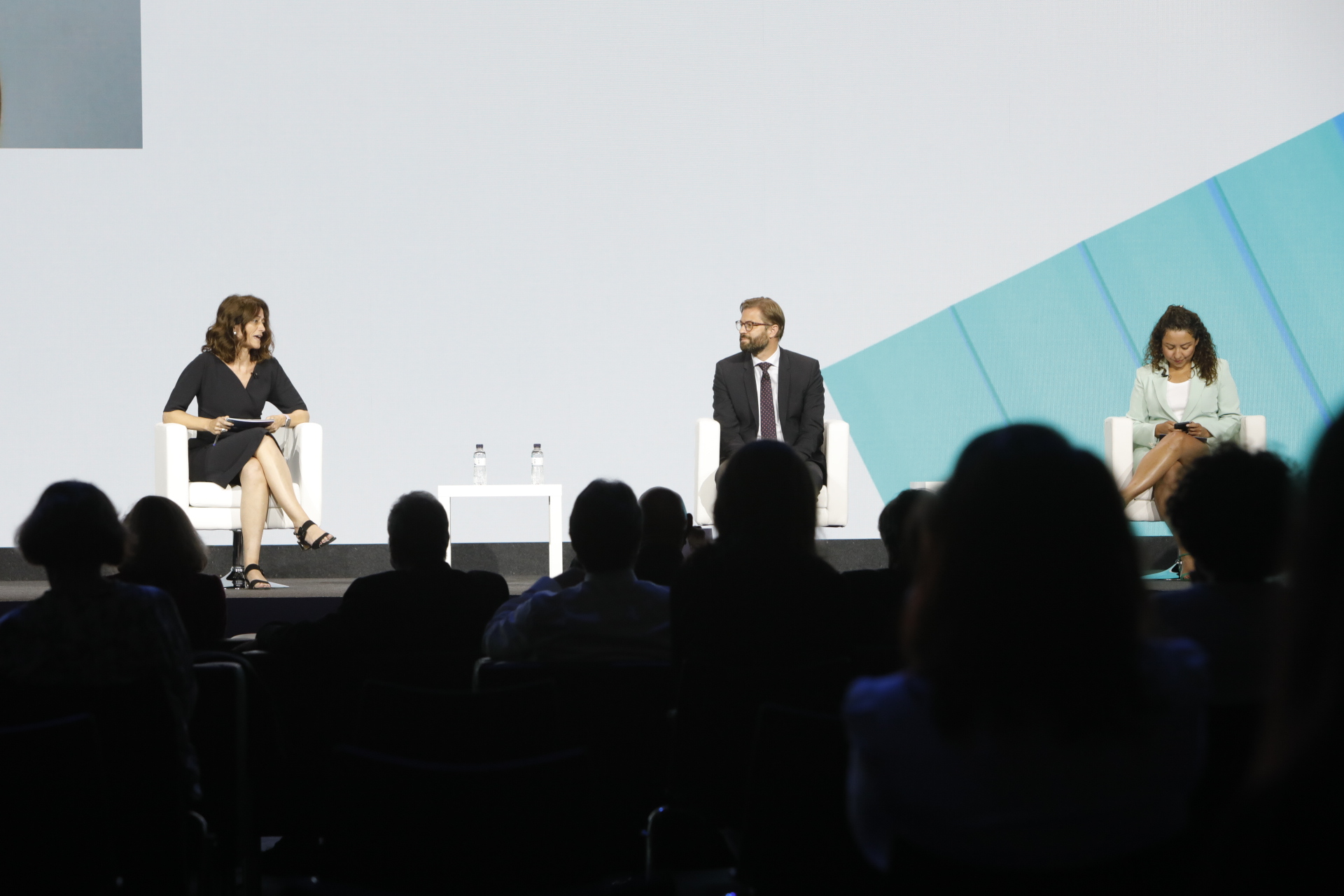
VIP Session: Foundations for a EU Leadership of Global Digital Landscape
To conclude the event, our third and final VIP Session began with a welcome address from Margrethe Vestager, Vice-president for Europe Fit for the Digital Age and Competition of the EU Commission who observed that “the digital transformation that we are living today, knows no border” and argued that “everyone should have digital skills to be able to participate in building our democracies.” Second Vice-President and Minister for Economy and Digitalization for the Government of Spain, Nadia Calviño, closed the day by insisting that “we need the right regulatory framework and the right rules in place” because “the future is not written, it will depend on what we do now, on what we want digitalization to look like.” With plenty of food for thought, participants and attendees were invited to save the date for the next edition of the Digital Future Society Summit 2021.
